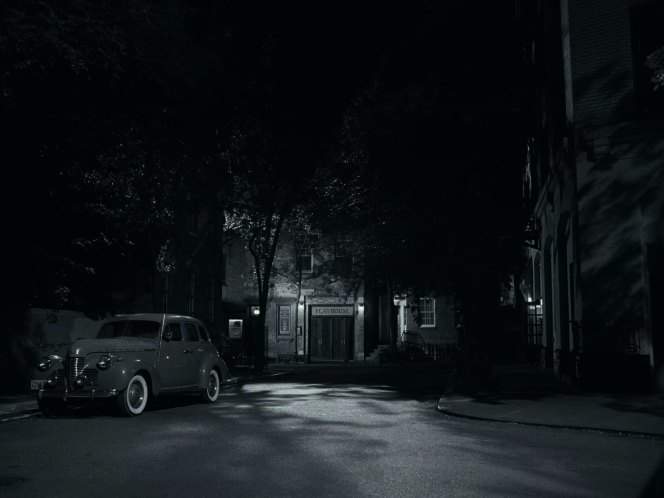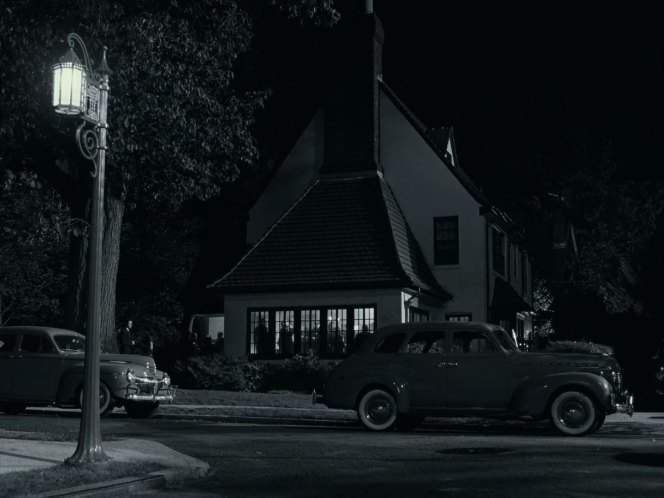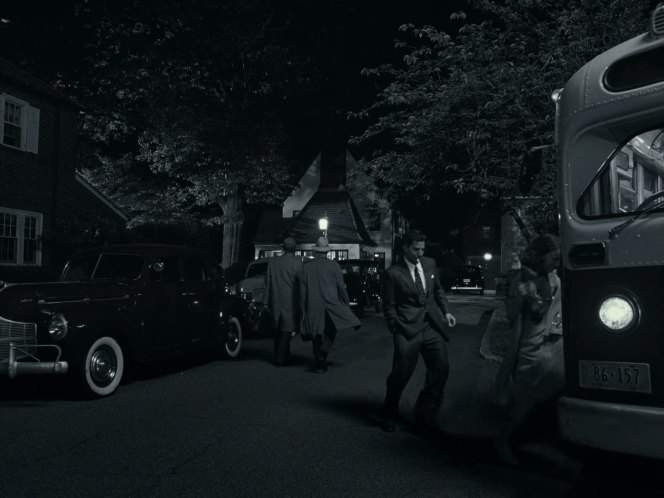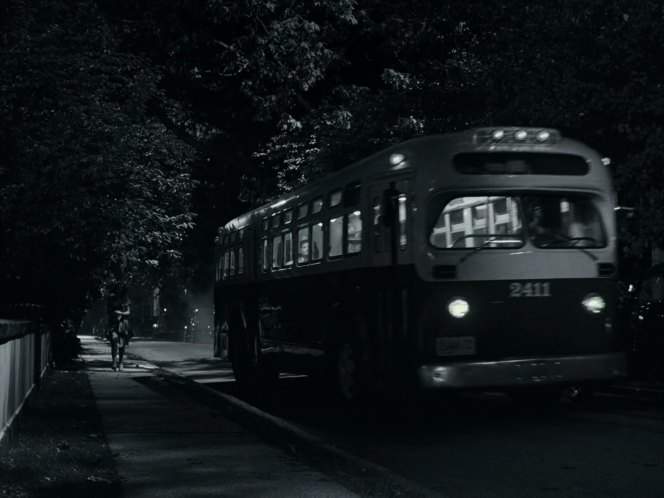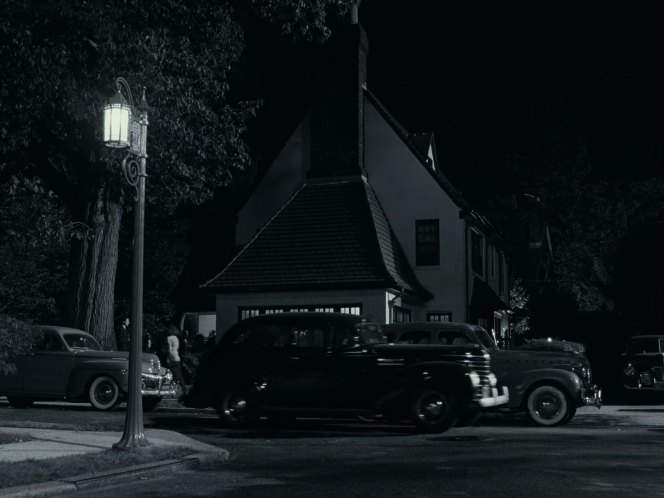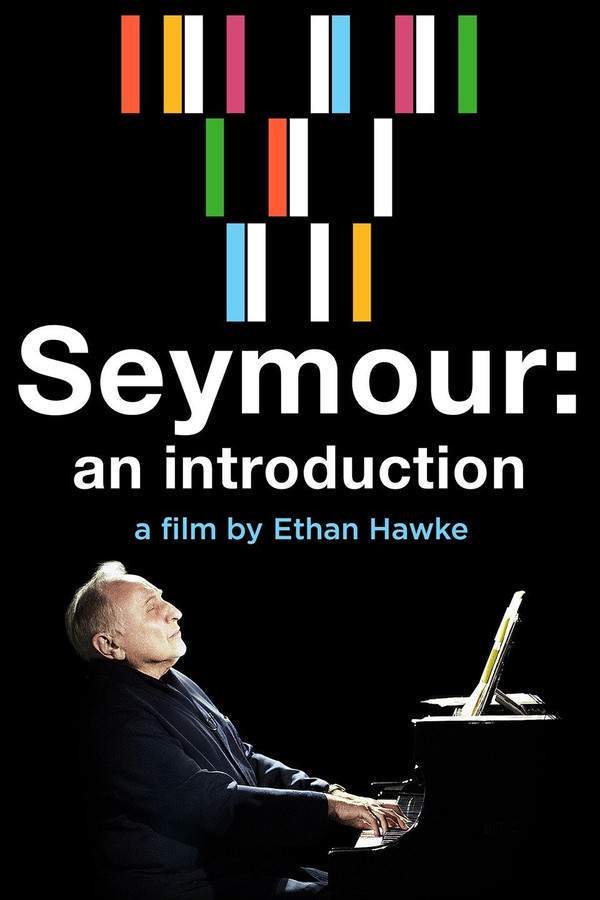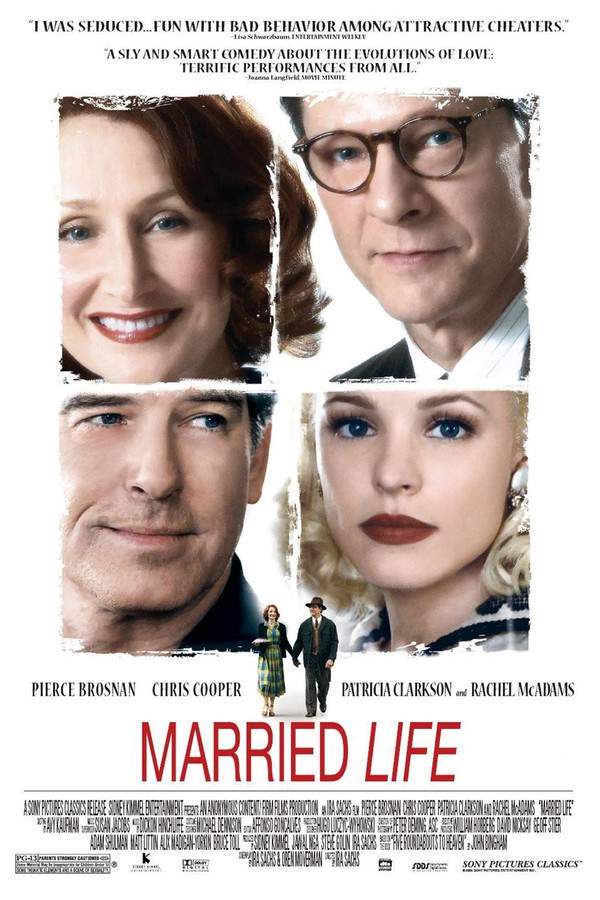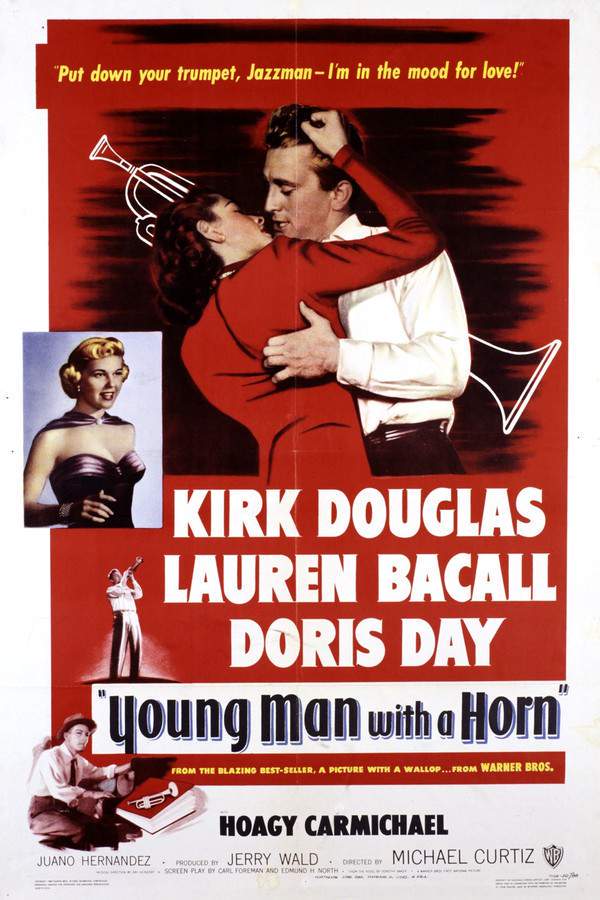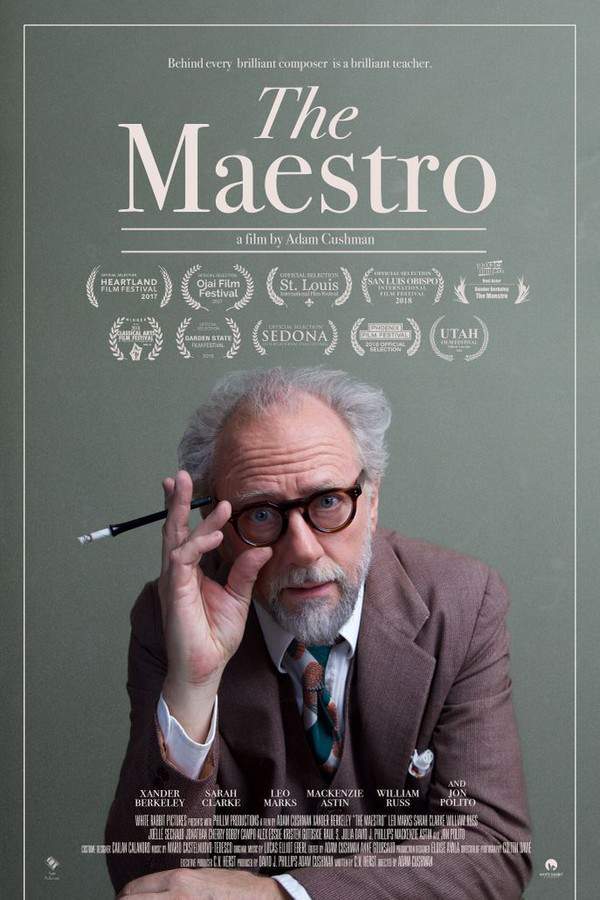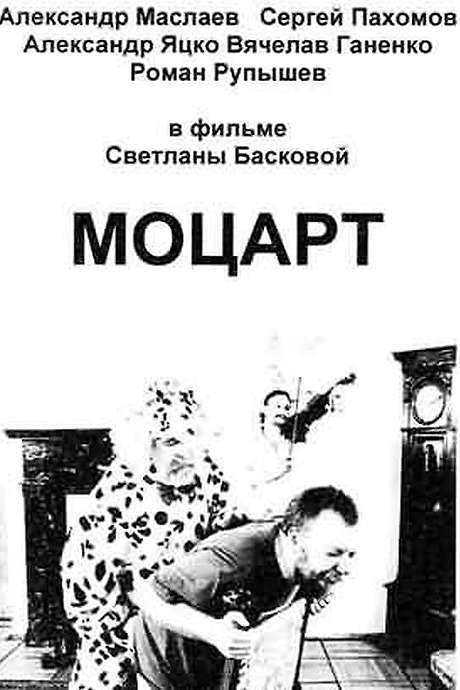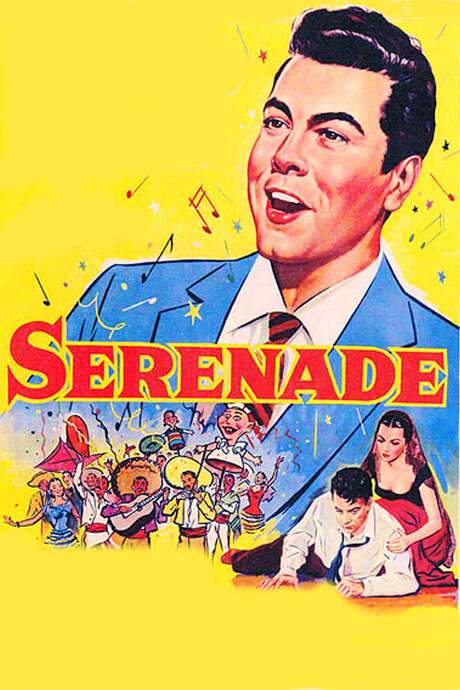Maestro 2023
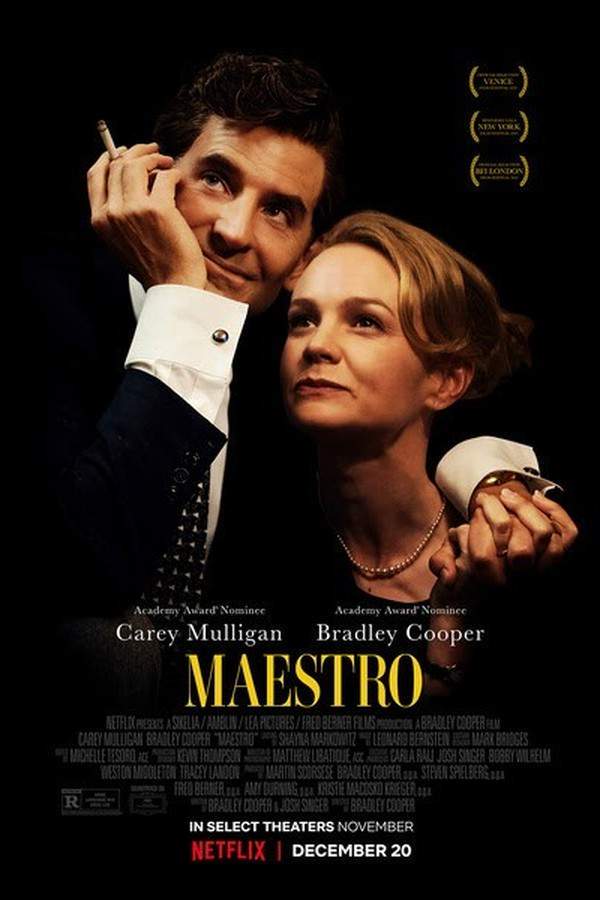
The film chronicles the passionate and complex relationship between legendary composer Leonard Bernstein and his wife, Felicia Montealegre. Their story begins with a whirlwind romance in 1946 and follows them through decades of love, artistic collaboration, and personal challenges. The narrative explores the depths of their connection against the backdrop of Bernstein's extraordinary career and the evolution of American music.
Does Maestro have end credit scenes?
No!
Maestro does not have end credit scenes. You can leave when the credits roll.
Meet the Full Cast and Actors of Maestro
Explore the complete cast of Maestro, including both lead and supporting actors. Learn who plays each character, discover their past roles and achievements, and find out what makes this ensemble cast stand out in the world of film and television.

Bradley Cooper
Leonard Bernstein

Sarah Silverman
Shirley Bernstein

William Hill
Joseph the Janitor

Matt Bomer
David Oppenheim

Michael Urie
Jerry Robbins

Vincenzo Amato
Bruno Zirato

Carey Mulligan
Felicia Montealegre

Valéry Lessard
Younger Actress

Greg Hildreth
Isaac

Nick Blaemire
Adolph Green

Mallory Portnoy
Betty Comden

Alexandra Santini
Claudio's Guest #1

Jarrod LaBine
Claudio's Guest #2

Kate Eastman
Ellen Adler

Renée Stork
Older Actress

Tim Rogan
Dick Hart

Sara Sanderson
Lil Hart

Yasen Peyankov
Serge Koussevitzky

Julia Aku
Olga
External Links and Streaming Options
Discover where to watch Maestro online, including streaming platforms, rental options, and official sources. Compare reviews, ratings, and in-depth movie information across sites like IMDb, TMDb, Wikipedia or Rotten Tomatoes.
Ratings and Reviews for Maestro
See how Maestro is rated across major platforms like IMDb, Metacritic, and TMDb. Compare audience scores and critic reviews to understand where Maestro stands among top-rated movies in its genre.

The Movie Echo Score
Maestro demonstrates considerable strengths in its visual and auditory design alongside committed lead performances, but it is tempered by an uneven script that undercuts narrative momentum. The film’s celebration of Leonard Bernstein’s emotional journey resonates in its quieter, more intimate moments, yet some viewers find the overall structure diffuse. While the sensory and production elements often elevate the material, the balance between artistic flourishes and character focus wavers. Ultimately, Maestro leaves a moderately favorable impression as a thoughtfully crafted but narratively inconsistent biopic.
The Movie Echo Score Breakdown for Maestro

Art & Craft
In terms of art and craft, Maestro features striking cinematography and ambitious production design. Critics noted its heady, bombastic sequences and inventive shifts from monochrome to vivid color, praising cohesive visual composition and measured editing. A few observers found some expressive flourishes feeling hollow or overly stylized. Overall, the film’s technical artistry generally succeeds in creating an engaging period atmosphere despite occasional excess.

Character & Emotion
When it comes to character and emotion, Maestro is anchored by committed lead performances and palpable on-screen chemistry. Bradley Cooper’s immersive portrayal and Carey Mulligan’s nuanced presence earned frequent commendation, particularly in emotionally charged scenes. Some critics, however, felt character arcs remained underexplored or hollow. Overall, the film offers a solid emotional core driven by strong acting, even as certain personal dimensions feel insufficiently developed.

Story & Flow
Regarding story and flow, Maestro presents a mixed narrative with uneven pacing and structural imbalances. Observers praised its moving later sections and intimate focus on Bernstein’s relationships, but many noted that the screenplay struggles to sustain momentum, with occasional digressions and unclear dialogue. While moments of genuine emotional engagement emerge, the overall plot coherence is disrupted by a diffuse approach. Net impression: the film’s highlights are notable yet undermined by narrative inconsistency.

Sensory Experience
In terms of sensory experience, Maestro excels with an immersive soundtrack, dynamic sound design, and visually expressive style. Multiple reviewers highlighted the film’s lush orchestral score and exceptional audio transitions that mirror emotional states, alongside vivid production design and creative camera work. The cohesion between sound and imagery consistently enriches key sequences. Overall, the sensory presentation stands out as one of the film’s most compelling assets.

Rewatch Factor
Concerning rewatch factor, responses are divided on the film’s lasting appeal. Some viewers appreciate its aesthetic moments and emotional undercurrents, suggesting thoughtful visuals and performances invite repeat viewings. Others find the central narrative too diffuse and the tone occasionally pretentious, diminishing replay value. In summary, Maestro offers idiosyncratic qualities that may reward select audiences, but it may not sustain broad enthusiasm for multiple viewings.

77
Metascore
5.9
User Score


78%
TOMATOMETER

57%
User Score

6.5 /10
IMDb Rating

63
%
User Score

3.1
From 286 fan ratings

4.14/5
From 7 fan ratings
Take the Ultimate Maestro Movie Quiz
Challenge your knowledge of Maestro with this fun and interactive movie quiz. Test yourself on key plot points, iconic characters, hidden details, and memorable moments to see how well you really know the film.
Maestro Quiz: Test your knowledge about the life and legacy of Leonard Bernstein as depicted in the movie 'Maestro'.
Who plays the role of Leonard Bernstein in 'Maestro'?
Bradley Cooper
Matt Bomer
Michael Urie
Gideon Glick
Show hint
Awards & Nominations for Maestro
Discover all the awards and nominations received by Maestro, from Oscars to film festival honors. Learn how Maestro and its cast and crew have been recognized by critics and the industry alike.
96th Academy Awards 2024


Cinematography
Makeup and Hairstyling
Best Picture
Sound

77th British Academy Film Awards 2024




Best Cinematography
Best Make Up & Hair
Best Sound
29th Critics' Choice Awards 2024
Best Picture




Best Cinematography
Best Editing
Best Hair and Makeup
30th Annual Screen Actors Guild Awards 2024


39th Artios Awards 2024
Feature Big Budget – Drama
81st Golden Globe Awards 2024
Best Motion Picture – Musical or Comedy


Full Plot Summary and Ending Explained for Maestro
Read the complete plot summary of Maestro, including all major events, twists, and the full ending explained in detail. Explore key characters, themes, hidden meanings, and everything you need to understand the story from beginning to end.
The curtain rises on an elderly Leonard Bernstein, portrayed by Bradley Cooper, who is immersed in a reflective state as he plays a touching piece from his opera, A Quiet Place. As the camera crew captures this intimate moment, the melody fades, leaving Leonard lost in memories of his late wife, Felicia, brought to life by Carey Mulligan. He confides to the crew that there are times when silence brings her spirit very much to life, almost as if she is right there beside him.
Switching to the year 1943, we encounter a youthful and driven Leonard, affectionately nicknamed “Lenny.” A significant phone call transforms his destiny: renowned conductor Bruno Walter falls ill, creating a golden opportunity for Lenny to step in as assistant conductor for the New York Philharmonic. With his partner, clarinetist David Oppenheim (Matt Bomer), still fast asleep, Lenny leaps into action, arriving at the theater just in time to receive a rousing ovation.
Leonard’s star begins to ascend swiftly as he teams up with David and Jerry Robbins (Michael Urie) on numerous projects. It is amidst a lavish party that he has a chance encounter with Felicia Montealegre, an emerging actress whose chemistry with Lenny ignites a spark. They rehearse a scene at her local theater, culminating in a sweet kiss that hints at a deep connection.
As their romance flourishes, plans for the future take shape. However, the looming specter of anti-Semitism leads Lenny’s friends to suggest adopting a different last name. Felicia, however, intervenes, prompting them to leave the party for a spontaneous theater outing instead.
Lenny soon finds himself grappling with complex emotions, leading to the painful decision to part ways with David, who takes the news with an understanding yet apparent heartache. He eventually marries Ellen Adler (Kate Eastman), starting a family with her before he finds himself deeply enamored with Felicia. They marry and welcome three children: Jamie (Maya Hawke), Alexander (Sam Nivola), and Nina (Alexa Swinton).
As Leonard gains acclaim for works such as On The Waterfront, West Side Story, and operas like Candide, Felicia stands resiliently by his side, all the while coping with the painful truth of his infidelities. During a high-profile gathering, she witnesses him in an intimate conversation with young composer Tommy Cothran (Gideon Glick), leading Leonard to navigate a precarious path to mend his relationship with Felicia.
One eventful morning finds Leonard stumbling into their home, the weight of a tumultuous night hanging over him. Felicia’s mixed expression of worry and unease reflects the tensions building within their family, particularly as their daughter Jamie has begun to hear hurtful rumors about their marriage. Felicia pleads with Leonard not to disclose the truth to Jamie, prompting him to deflect the conversation by showcasing his latest work—a stirring composition titled “Mass.” The children are captivated, yet Felicia’s distress brews beneath the surface, leading her to momentarily plunge into the pool, overwhelmed by her emotions.
As Thanksgiving nears, the escalating friction between Leonard and Felicia climaxes during a sharp disagreement, where Felicia confronts him about the hatred he harbors deep inside, cautioning that it will lead him to a lonely existence. Her piercing words leave Leonard in turmoil.
Their relationship continues to fray amidst their individual ambitions. A performance in England in 1973 provides a professional high for Leonard, yet the distance between him and Felicia feels insurmountable. However, during his impassioned performance of Mahler’s Resurrection Symphony at Ely Cathedral, Felicia is visibly moved, pride washing over her as the audience applauds. In this fleeting moment, the love shared between them sparks anew.
Reality soon hits hard, as Felicia’s health takes a devastating turn with a diagnosis of breast cancer, leaving both of them reeling in its wake. She endures chemotherapy at home, with Leonard and their children rallying around her, but as the cancer advances to her lungs, Felicia becomes progressively frail.
During her final moments, Leonard cradles Felicia tenderly as the sunset blankets them in a warm glow, a heartbreaking farewell steeped in love and sorrow. He later comforts their devastated daughter, Jamie, who seeks solace in the memory of her parents together.
After Felicia’s passing, Leonard and the children leave their grand home, stepping into an uncertain future while still grappling with grief. Leonard continues to share his passion for music with new generations of conductors and encounters a promising student, William (Jordan Dobson), hinting at the potential for a fresh start.
As Leonard reflects on his past during an interview, he recalls Felicia’s wise words that resonate deeply: > “If summer doesn’t sing in you, then nothing sings in you. And if nothing sings in you, you can’t make music.” These poignant insights have become foundational for him, perpetually grateful for the music that indeed resides within him.
As the cinematic journey concludes, the audience is drawn back to Felicia, her spirit beautifully captured in Leonard’s vivid memories. The camera glides over familiar landscapes, offering a touching portrayal of Felicia as she appears in Leonard’s mind, strolling gently into their cherished sanctuary—a quiet moment that unveils the profound depths of a man whose existence has been a vibrant tapestry of musical inspiration.
Accompanying the credits is a tribute to the legendary conductor whose life inspired this cinematic portrayal, featuring Leonard Bernstein himself in archival footage, conducting with unmistakable passion. This serves as a heartfelt reminder of the immortal influence of art and its ability to leave an everlasting imprint on our hearts and minds.
Uncover the Details: Timeline, Characters, Themes, and Beyond!

Coming soon on iOS and Android
The Plot Explained Mobile App
From blockbusters to hidden gems — dive into movie stories anytime, anywhere. Save your favorites, discover plots faster, and never miss a twist again.
Sign up to be the first to know when we launch. Your email stays private — always.
Watch Trailers, Clips & Behind-the-Scenes for Maestro
Watch official trailers, exclusive clips, cast interviews, and behind-the-scenes footage from Maestro. Dive deeper into the making of the film, its standout moments, and key production insights.
Cars Featured in Maestro
Explore all cars featured in Maestro, including their makes, models, scenes they appear in, and their significance to the plot. A must-read for car enthusiasts and movie buffs alike.
Maestro Themes and Keywords
Discover the central themes, ideas, and keywords that define the movie’s story, tone, and message. Analyze the film’s deeper meanings, genre influences, and recurring concepts.
Maestro Other Names and Titles
Explore the various alternative titles, translations, and other names used for Maestro across different regions and languages. Understand how the film is marketed and recognized worldwide.
Similar Movies To Maestro You Should Know About
Browse a curated list of movies similar in genre, tone, characters, or story structure. Discover new titles like the one you're watching, perfect for fans of related plots, vibes, or cinematic styles.
Quick Links: Summary, Cast, Ratings, More

What's After the Movie?
Not sure whether to stay after the credits? Find out!
Explore Our Movie Platform
New Movie Releases (2025)
Famous Movie Actors
Top Film Production Studios
Movie Plot Summaries & Endings
Major Movie Awards & Winners
Best Concert Films & Music Documentaries
Movie Collections and Curated Lists
© 2025 What's After the Movie. All rights reserved.















